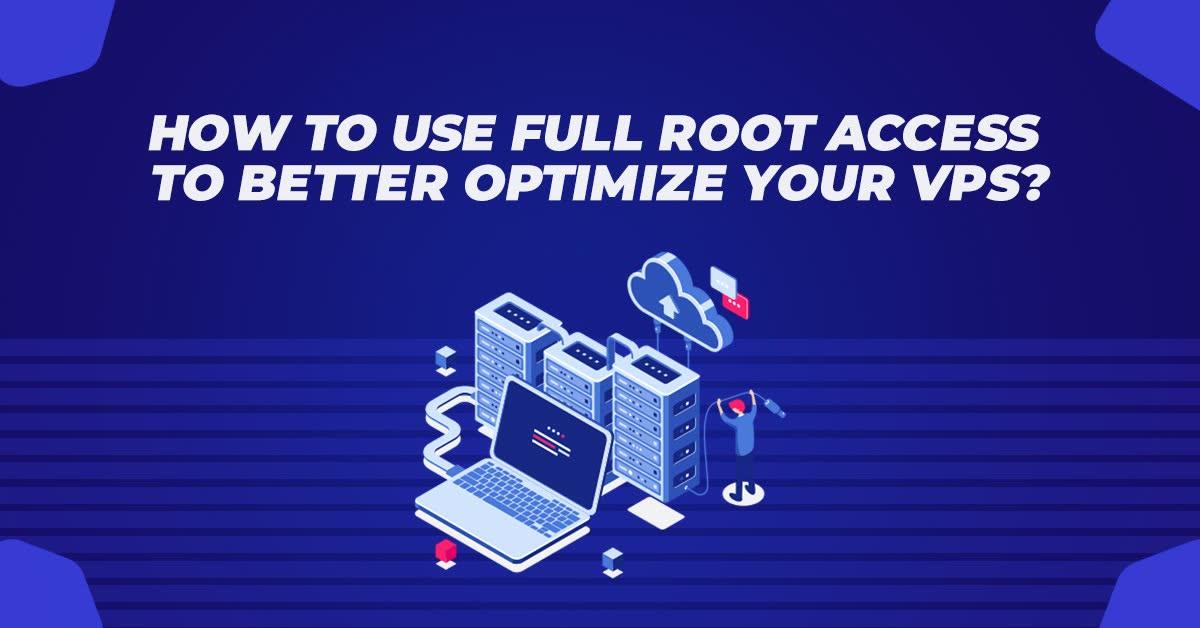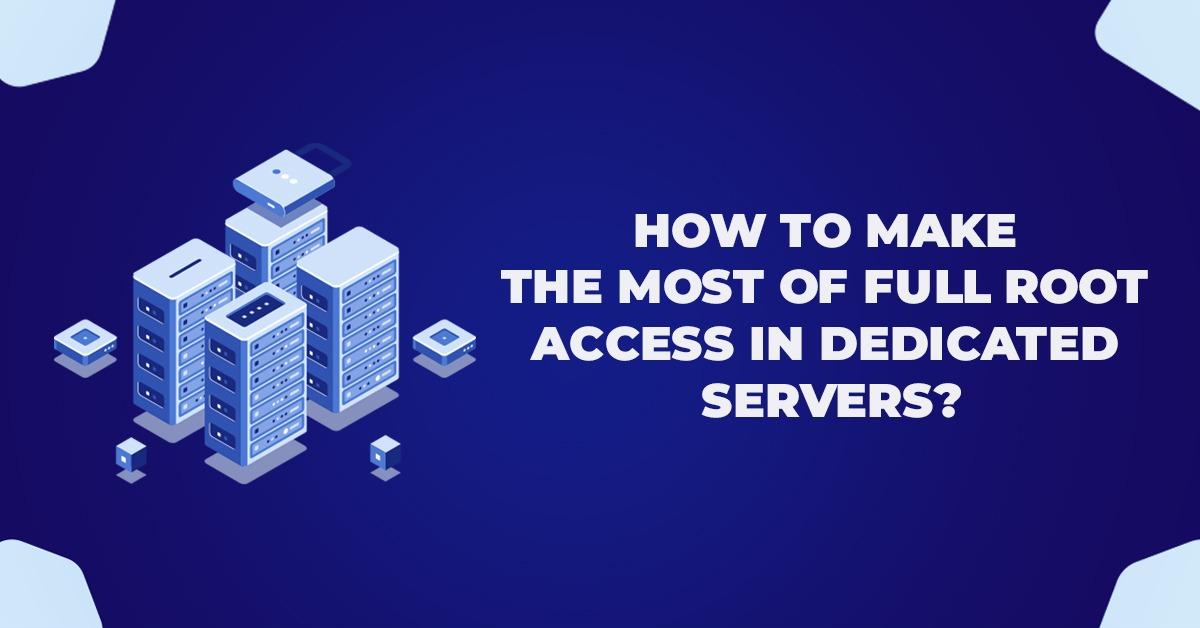How To Use Full Root Access To Better Optimize Your VPS?
Virtual Private Server Hosting or VPS Hosting is the place where numerous sites share a solitary actual server. This sounds like Shared Hosting, however, there are justifications for why VPS Hosting has many advantages over Shared Hosting and is viewed as a middle point between Shared and Dedicated Servers. In VPS Hosting, each site is detached from one another with every server getting a devoted arrangement of resources like disk space, processing power, and bandwidth.
Because of server virtualization and the utilization of hypervisor innovation, an actual server is partitioned into various virtual servers, each secluded from the other. Accordingly, the VPS engineering guarantees a ‘virtual’ and ‘private’ hosting arrangement, where each virtual server behaves like an independent server.
This security and seclusion permit VPS Hosting clients to access their servers to change, improve and set up the server according to their particular requirements. Full root access is this access to the server.
What is Root Access?
Root access suggests Linux executive access. In terms of an example, think about how you utilize your home PC. To delete or move any document or an application, you require administrator access in Windows. Instead of administrator access, the word ‘root’ is utilized in Linux operating systems.
Also, most VPS are on Linux! Root access is to leave clients without any choice of changing, moving, or erasing significant PC documents. Root access gives a raised degree of admittance to your Linux machine.
Root Access in VPS Hosting
In a modest VPS facilitating climate, root access grants unhindered, unlimited, and unchallenged admittance to servers. The necessity for root access comes from system administrators, who require limitless oversight over the server. System administrators habitually need to change designs, present outsider applications, change security settings, and so on to convey ideal site execution and security. Doing these tasks without root access is almost unbelievable.
The greatest advantage of VPS engineering is root access. Every site in a VPS facilitating environment has a fixed number of resources. The greatest gain of this VPS design is that each site can then be dealt with like a little, independent server. Moreover, when you have a free server for yourself, root access makes you capable of redoing your server in the manner you want it.
How To Use Full Root Access To Better Optimize Your VPS?
1. Port administration
Most digital hacks on sites occur through bots. These are dangerous pieces of code composed of programmers that naturally focus on a site and steal important pieces of information. What empowers these bots is the way that most site proprietors never show signs of change or close open ports.
The method for staying away from these assaults is twofold. First, close all ports that you’re not utilizing. Shutting these unused ports will bring down your exposure to the risk. The method for doing this is very straightforward when you have root access. You can simply request your server to list all the ports that are open but aren’t being utilized.
Second, change the default listening ports. For instance, the default SSH is named port 22 to listen port. You should change its name to another number. Most bots, at least in the present day, can’t go after your organization provided that you’ve changed the default ports.
2. Check if your servers are being utilized to spam individuals
The truth is that many individuals don’t understand when their sites or web servers are hacked. There are generally no signs of a hack. The issue with this is hackers can involve your web server and its assets for noxious purposes. With root access, you can browse and check if your email passwords are compromised. You can get a rundown of all the IP addresses that have gotten to your email account. This in itself is of no utilization because you might get to your email from various areas and gadgets.
However, the list shows the topographical areas of the IP addresses on a map. Along these lines, assuming your email is being accessed and used from gadgets that you don’t possess and from areas that you haven’t visited, you can realize that your email password has been compromised and is being utilized to spam individuals. It very well might be utilized for undeniably more loathsome purposes, yet messages that are taken are, as a general rule, used to spam target clients. A password change will typically fix this issue.
3. Control root access
This is one of the most essential responsibilities you have to deal with when you get root admittance to your VPS facilitating server. Root access permits you to adjust your entire framework. Nonetheless, assuming you are indistinct about how to use them, you could wind up harming your framework, and make it’s working unrecoverable. So you should make sure you give root access just to clients that know what they are doing and that require it. Keeping the gathering little will guarantee that the potential for botches is restricted too.
4. Disable all hotlinking
Theft of transfer speed or bandwidth is known as hotlinking. This can be done in a very simple and straightforward way. At the point when they need a piece of content, say an image from your site, the adequate way is to download it first and afterward upload it to whichever website it is needed for. Tragically, there are site proprietors who decide to get the link of the image and afterward post it on their website.
So every time that piece of content is opened by someone on the internet, it is your server rather than theirs that would have to load the piece of content her image, utilizing your assets. The most awful part is that it won’t assist you with bringing in any more cash or getting clients. So you don’t profit from it by any means. On the off chance that your site is small and still growing, you probably won’t think the issue is too big. But, it will negatively affect the restricted transfer speed you have. Root access becomes an integral factor here to assist you with blocking all hotlinking to various kinds of content on your site. It ensures that your assets are not spent on another person’s site.
5. Utilize outsider applications
The main benefit of having root access is that you can introduce outsider applications that aren’t locally supported by your VPS Hosting supplier. Make the most of this. Utilize outsider cloud-based security applications that can safeguard your site better. You can introduce work process software that will make your business more effective. The potential outcomes are huge here. The thought is to make your site and your business secure and effective at the same time.
6. Restrict access to the internet
A couple of applications need to utilize the web to work. Those applications should move toward the web. But, there is a huge load of applications that don’t need to involve the web for standard working. Ensure that those applications don’t move toward utilizing the web.
Each application getting to the web each time lays out a danger. If applications don’t have to go on the web, they shouldn’t be. Use root admittance to handicap access.
Conclusion
The root access in VPS is a strong way to upgrade your site. It’s an extraordinary tool to extend the workings of your site. The primary obstacle to having root access is that it’s all-powerful. If you don’t have even the remotest clue of what you’re doing, then, there’s a certain probability that you’ll end up eradicating or altering essential records with next to no way to deal with getting back to the past settings or arrangements. However, assuming you’re a trained professional and have an in-house IT bunch, root access is an irrefutable necessity. It permits you to set up your site in the way you want it. It similarly allows you to make adjustments that can achieve more noticeable execution and security.
If you are planning to take VPS Hosting plans from some company, you should ensure that the company has a good history. They must offer their customers fast, reliable as well as secure hosting platforms.




































